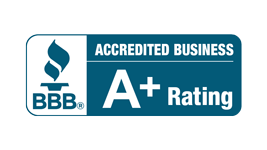Prepare Your Case When Representing Yourself
If you do decide to represent yourself in a courtroom, you are responsible for all aspects of your case. And, you are at a disadvantage. These are not small claims. The rules of civil procedure and evidence will be applied to you just as if you were an attorney.
But you are not trained as an attorney. So, you should spend some time preparing for this trial including:
- Become familiar with court rules in general and specifically with the local court rules. Be aware that rules and procedures vary slightly from court to court, and you are held to know the rules that apply in the court that will hear your case. The local rules are available from your court and the Ohio rules can be found online.
- Be aware that generic forms and sample filings you find on the internet may not conform to the standards of the court where you are being sued.
During the case, you may receive inquiries from the court or the opposing party. For example, the opposing party may be entitled to “discovery”— to learn about evidence or testimony you plan to introduce (you may be entitled to the same). If you fail to respond to such inquiries, you may not be permitted to introduce evidence you need to support your case.
Attorneys spend entire semesters or more on just this one subject; for good reason. If you fail to get some of your evidence in, you may lose even though you could have won, had the judge let the evidence in. You will not be treated more leniently just because you are not an attorney. This can be frustrating for non-attorneys: if your case will involve contested evidence, consider again whether you need an attorney.
If your case will involve evidence—documents, pictures, cost estimates, receipts, or other items—you must prepare it for court use. Bring at least three copies of all documents (for the court, for the opposing party, and for yourself ); and be able to verify that documents are what you say they are or contain accurate information.

At the Trial
At the trial or hearing itself, you need to present your case in its strongest way. Here are some simple tips:
Make a good impression — Dress appropriately. Arrive on time with all your materials.
Show respect to the court — Stand when the judge enters or leaves the courtroom and when you speak to the judge. Address the judge as “Your Honor.”
Respect the other side — Never argue with the other attorney. Use respect. Call the attorney by their surname as in Mr. or Mrs. Jones.
Speak clearly — Don’t be long-winded. You should rehearse your case, and be able to explain it in a few sentences. Listen carefully and answer the question that is asked, and only elaborate if you feel that you must in order to fully answer the questions.
Be prepared — This is really very important. Courts are busy. You want to present your case fully and well. But don’t take more time than is necessary to make your point.
The Role of the Judge or Magistrate in Court
Your case will probably be heard and decided by a magistrate, but you may be in front of the Judge. Either way, the conduct of the trial is the same. Remember that:
- The judge may not help you at this trial;
- The judge is impartial, and cannot help either side. Again, when you represent yourself, you are fully responsible for your case;
- The judge won’t speak with you about your case when the opposing party is not present. Not for any reason. This is called an ex-parte communication and such communications would be unfair to the opposing party;
- The judge will decide the case on the basis of the facts presented in court and the law.
The judge may only consider the facts as they are presented in court, through evidence and testimony. You need to decide what facts are important and get them into evidence. If a fact you need to win your case is kept out of the trial for any reason, you may lose even though you may have won had you got the evidence in. The judge will follow the laws that apply. Sometimes the law dictates which facts the judge may and may not consider. You need to make sure that you present the facts that the law requires or permits.
Finally, remain calm and behave appropriately. Getting upset will only keep you from focusing on the trial. Keep your cool and do your best.

If you decide on having representation for your bankruptcy case in Ohio, contact the Richard West Law Office today.




